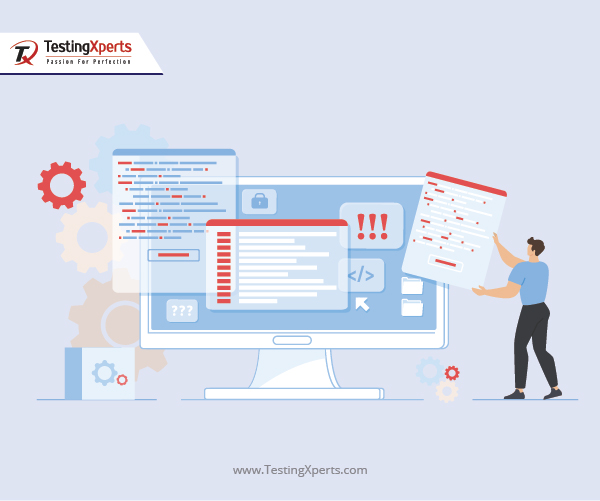Where AI Could Fall Short In Software Testing?
AI in software development is gaining acceptance, let us
look at just how AI can perform in software testing- its possible and
shortcomings.
After evaluation automation, AI-based testing resembles the
obvious next step. Here's how things have rolled out in the software testing
space:
Traditionally, manual testing has ever had a role to play,
since no program is produced sans bugs. Even with all of the tools available,
an integral part of the procedure is handled manually by technical testers.
As time passes, test automation required root. In several
cases, test automation is the only viable approach if you need to run a large a number of test instances, quickly and with higher efficiency.
AI-enabled testing is making test automation brighter by
using quantities of data. QA engineers may feed historical data into algorithms
to improve detection rates, execute automated code reviews, and generate test
cases.
Let us have an overview of what AI can perform in
Software Testing.
The Potential of AI in Software Testing:
As organizations aim for continuous delivery and quicker
applications development cycles, AI-led testing will become a more established
part of quality guarantee. When considering only software testing jobs, there
are several jobs that caliber Assurance engineers work numerous occasions.
Automating them can induce massive increases in productivity and efficiency.
Along with the repetitive activities, in addition, there are
a number of tasks that are similar in nature, which, if automated, will produce
the life of a software tester easier. And AI will help identify such match
cases for automation. For instance, the automated UI test cases that fail each
time we create an alteration in a UI component's title can be fixed by altering
the name of an element in the test automation tool.
However, what are the limitations?
Why AI won't take over entire QA phases?
Though Artificial Intelligence holds strong promise for
testing, it will not be easy for mere technology to completely take over.
Humans need to oversee AI:
Until then, organizations need human pros to create the AI
and also to oversee operational aspects that are automated with AI. In short
manual testers will always be a part of the testing approach to ensure
anti-virus applications.
AI is not as complicated as human logic:
AI will bring more impactful change in how it assists
software testers to help them perform their jobs with more precision,
precision, and efficiency. But for all tasks that require more imagination,
intuitive decision making, and user-focused evaluations, it might need to be
human software testers who maintain the fort. For a while at least!
AI can not, and never will, eliminate the need for People
in Testing:
Organizations can utilize AI-based testing tools to cover
the types of software testing, and easily uncover defects by
auto-generating test cases and implementing them for mobile or desktop.
However, this kind of approach isn't feasible once you need to assess a complex
software product with various features and functions to test. Experienced
software QA engineers bring a wealth of insights into the table that goes
beyond the data. They can make the choices that must be made even if data does
not exist. When a new attribute is being implemented, AI can struggle to find
enough solid information to specify the way forward.
Functions in Software Testing that can not be completely
trusted to AI:
AI can seamlessly help with tasks that are repetitive in
nature and have been completed before. But, even when we leverage AI to its
full potential, you will find occupations within QA that need human assistance.
Documentation Review -- Comprehensively learning about the
ins and outs of a software program and determining the breadth and length of
testing demanded in it's something better trusted to a human.
Creating Tests for Complex Scenarios -- Sophisticated test
cases that span several attributes within a software solution might be better
done by a QA tester. How something appears to the users and, more importantly,
how it feels to these, is a task beyond the likely capabilities of AI.
The same as automation goals at reducing manual labour by
addressing dull jobs, AI-led QA reduces repetitive use additional intelligence
by taking it up a notch upward.
However, it will help QA testers to familiarize themselves
using technologies AI to progress their career when these tools become
commonplace. The truth is that AI is creating a stand, but we still need
diligent, innovative, and expert QA engineers on the product development teams.


Comments
Post a Comment